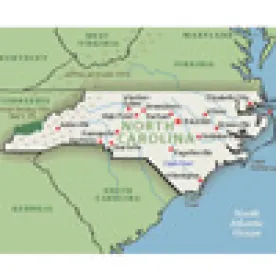The North Carolina Court of Appeals recently released an unpublished opinion further illuminating how insurers can effectively cancel worker's compensation policies. However, nothing in the case limits its application solely to workers' compensation (or assigned risk workers' compensation policies). As a result, this case gives some guidance to insurers who wish to effectively cancel policies of all sorts of insurance for any valid reason (such as payment of premium).
In McNeill v. McNeill, Travelers provided a worker's compensation policy to the employer. Pursuant to the policy's terms and North Carolina statutory law, Travelers then requested certain information from the employer, including its IRS 1040 and Schedule C tax information. After two months elapsed, and because the employer had not responded with any information, Travelers sent a cancellation letter to the address on the policy (certified mail, return receipt requested), giving notice that the policy would be cancelled in four weeks. The certified mail indicated that the cancellation letter was delivered.
During the case, the parties deposed Betty Hurst of the North Carolina Rate Bureau. She testified that this was an assigned risk policy, and that Travelers' request for the employer's 1040 and Schedule C forms were "typical" and allowable under the North Carolina Workers' Compensation Assigned Risk Plan.
The Court of Appeals explained that, under N.C.G.S. 58-36-105(a)(2), an insurer may cancel a worker's compensation policy if the insured commits an "act or omission . . . that constitutes material misrepresentation or nondisclosure of a material fact in obtaining the policy, continuing the policy, or presenting a claim under the policy." To effect the cancellation, the insurer must follow the steps of N.C.G.S. 58-36-105(b).
The Court then applied North Carolina Rule of Civil Procedure 4 (specifically, Rule 4(j2)(2) to the insurance cancellation statute, and concluded that the insurer sending a cancellation letter, via certified mail, to the employer's last known address (which was the same as the address appearing on the policy), and the letter being received, was sufficient under Rule 4 and N.C.G.S. 58-36-105 to effect a cancellation of the policy.
Further, the Court stated that "it does not offend these principles [of administrative law or the law of the Industrial Commission] to hold that Travelers cancelled Defendant's workers' compensation policy for his failure to produce 1040 and Schedule C forms."
Because this opinion is an unpublished opinion of the Court of Appeals, reported pursuant to North Carolina Rule of Appellate Procedure 30(e), it is non-binding on future panels. Specifically, "an unpublished decision of the North Carolina Court of Appeals does not constitute controlling legal authority." However, citation is still allowed under Rule 30(e)(3) if there are no other published opinions on a material issue in a future case. There is nothing in this opinion that should limit its application solely to workers' compensation cases. Because the issue of effective cancellation of insurance policies frequently comes up, this case may prove important for practitioners in the future.




 />i
/>i

